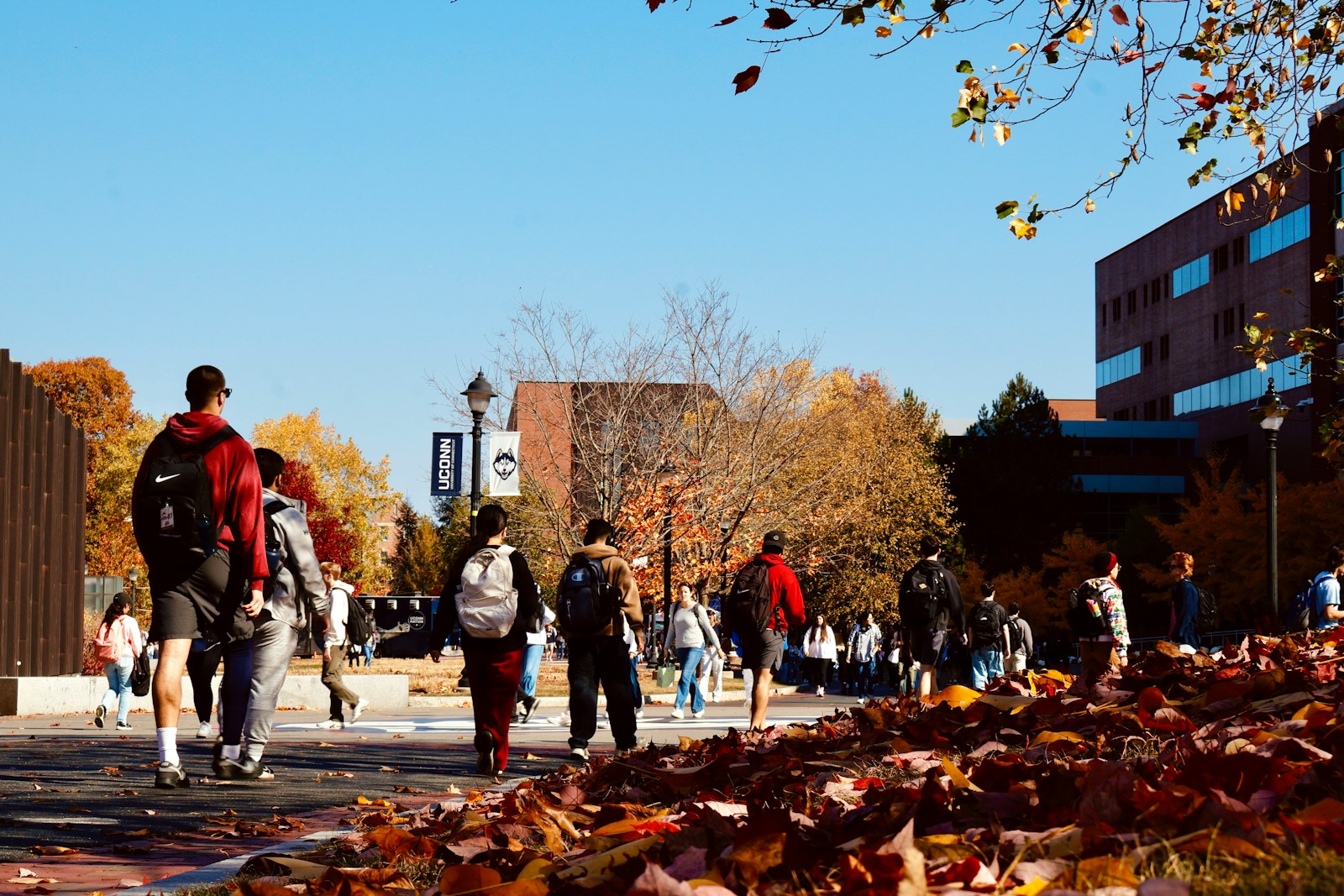Warning: Going to college could negatively affect your health!
Well, that’s the bad news out of the way, but before you drop out of your studies or rip up your college application forms, know that our warning doesn’t have to come true for you. But even if you are at college, and feeling the ill-effects of any of the health issues we are going to discuss in this article, there are still ways to turn things around for the better.
Let’s take a look at a few examples then. Read them, heed them, and live your life at college as productively and as healthily as you can without the following health issues getting in your way.
Health Issue #1: Drug and/or alcohol addiction

Nobody sets out to be a drug or alcohol addict, but according to the shocking statistics in this article, those people enrolled in a college education are twice as likely to abuse drugs and alcohol than those who aren’t. Why? Social anxiety is one issue, as many students are tempted to drink and take drugs to fit in with their peers. Another issue, and one we will look at in our next point, is stress. Many students take stimulants to relax, especially when faced with the pressures of college life. And another common issue is the partying lifestyle. To kick back and have fun, many students engage in drugs and alcohol because they think they should in order to have a good time. The trouble is this. Once started, these habits are difficult to give up, and in many cases, full-blown addiction is the consequence.
So, what about you? If you don’t drink or take drugs, then continue along this path. If you are ever tempted to take something by another student, remember that you are in your right to say no. Know too that there are better ways to deal with stress than taking drugs and alcohol, such as playing video games, taking part in exercise, and talking your problems out with others. And know that you don’t need to be intoxicated to have a good time. But if you do have a problem with either substance, do the sensible thing and seek help. Speak to your doctor, enrol onto a treatment program – this evidence-based substance abuse treatment program is one example – and then change your lifestyle to improve both your health and your academic prospects.
Health Issue #2: Stress, anxiety, and depression
The three often go hand in hand; depression being a consequence of the others. And it’s little wonder students fall prey to these health issues. There is the pressure of studying and trying to keep to deadlines. There are financial pressures, especially when living on limited means on a student budget. And there is the pressure of exams, with students stressing about them inwardly, while facing added exam stress with the extra pressures heaped upon them by parents and teachers. As a result of stress, many students struggle to sleep properly, and this adds further detriment to the way they are feeling, including the problems associated with depression.
Is this something you identify with? Are you burning the candle at both ends in an effort to keep up with college work? Are you struggling to perform academically because you are feeling tired, both mentally and physically? If so, you need to seek help. Speak to your doctor if you are feeling the effects of stress and depression, and try to take steps to keep your stress and anxiety under control. Speak to others, including your friends and college tutors, and ask for help when you need it. Get the sleep you need, as renewed energy will make you more productive with your college work. Exercise regularly, as this will naturally reduce the stress you are feeling. Then have fun (in a safe way) to distract yourself from your stressors. And even if you aren’t feeling the effects of stress yet, you should still practice these good habits, as well as the ideas listed in the article linked above, to make life easier for yourself at college.
Health Issue #3: The effects of a poor diet
When living at home, your parents probably made an effort to feed you with nutritional meals. Sure, you may have offloaded some of your greens in your dog’s direction, but we are assuming you still ate relatively well when under your parent’s supervision. And then you went to college. Like many students, you might enjoy the freedom of eating what you want when you want. From pizzas to potato chips, you have the ability to choose without anybody else telling you what you should or shouldn’t eat. This is all very well and good, but by eating junk foods more often than not, you are doing damage to your body. From putting yourself at risk of obesity to heightening the chances of serious bodily diseases, take a look at this guide on the problem of junk food to your body and mind. It makes for scary but necessary reading. The other issue around a poor diet is this. If you have a busy schedule during the day because of your studies, you might also miss out on important meals during the day. You might be tempted to fill your hunger with snack foods, or you might not eat at all for long intervals. Consequently, your energy will flag, you will work less productively, and you will weaken your immune system, meaning you will be more prone to infections and illnesses.
Put down that pizza slice for a moment, and consider this advice. If you are eating poorly, then you need to make a few changes. The first is to learn how to cook. Not only will this reduce your reliance on junk food, but it will also help you to save more of your student budget as well. There are loads of recipe ideas here, each one of them student-friendly, so take the time to practice them. Not only will you benefit from these healthy foods, but if you start making hot and healthy meals, you can guarantee your social life will improve when other students get a familiar hint of that home-cooked smell! Our second piece of advice is this. Keep healthy snacks lying around your student dorm. This way, if you are concentrating on your workload, you will be less tempted to reach for any unhealthy options. You should still make the effort to eat actual meals during the day, but when you do need to nibble on something, eating something healthy is better than eating something bad for you, or having nothing to eat at all.
Health Issue #4: Sexually transmitted infections
(image)
We would advise against having sex unless you are with somebody you have real feelings for. But we also understand the reality of the student lifestyle, and for many people, having sex is as common an activity as having a drink with a friend or spending time watching a movie. But here’s the thing. Having a promiscuous lifestyle, no matter how fun it might be, can have damaging effects on your health, should go for, say, a Chlamydia test and it comes back that you have tested positive for an STI. According to the Centre for Disease Control, nearly half of the STI’s diagnosed each year occur in people between the ages of 15-24. While some of them can be treated medically, others can have long-term consequences on your health. Of course, STI’s aren’t your only problem. Casual sex can also lead to unwanted pregnancies, and this can have further consequences for you, your sexual partner and your child.
To reduce the chances of an STI or unwanted pregnancy, you should always practice safe sex. Ensure contraceptives are used, as well as dental dams when practicing oral sex. You should also get yourself tested for an STI regularly, as even if you’re not sleeping around with people other than your regular partner, you should still get tested in the event that they are not as faithful as you are. And you should also get vaccinated against HPV, as this will protect you from a range of cancers, as well as genital warts. But remember too, that you don’t have to agree to sex. If you are under any pressure from anybody to do something you don’t want to do, you are in your right to say no. Walk away if you have to, or seek help from student services or the police if you feel pressured into sexual activity.
Finally
To fully enjoy student life, you need to take care of your health. By practicing self-care, you will both feel and think better on a daily basis, and this will both improve your social and academic prospects, as well as your long-term chances of staying fit and healthy. Follow our suggestions then. If any of them apply to you, make any changes that are necessary for you. And seek help if you are struggling in any way. There will be people on and off campus to support you, so you never have to suffer alone.
Let us know what you think. If you have related to this article, share your thoughts. And if you have any advice based on your student experiences, be sure to share your wisdom with us.
Take care, thanks for reading, and good luck with your studies.


